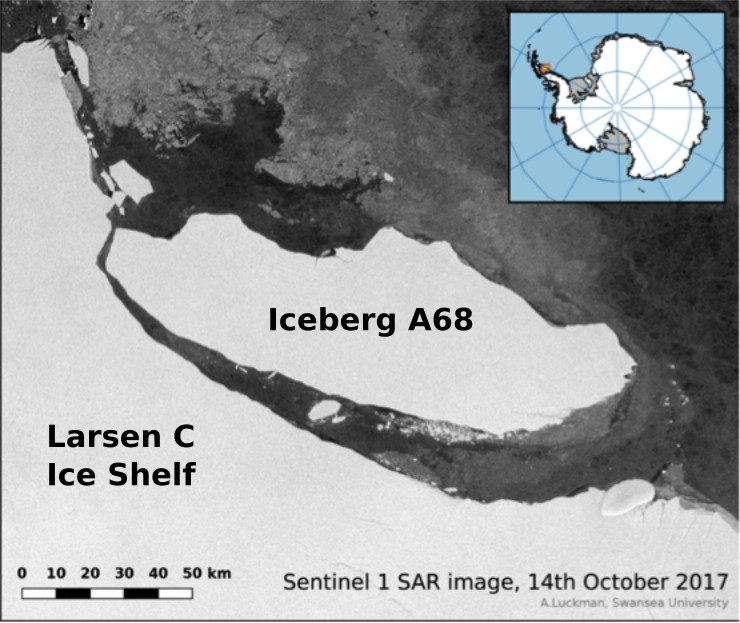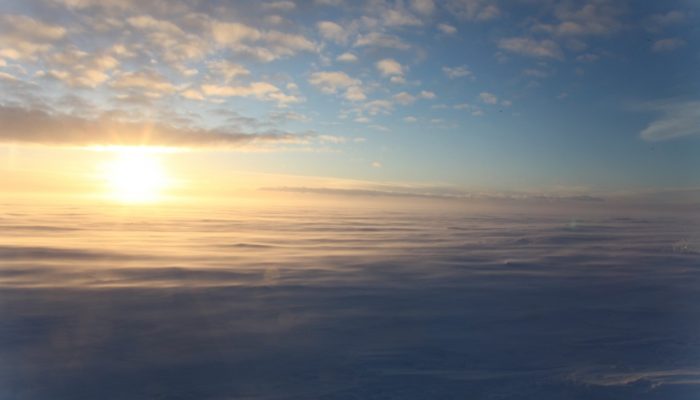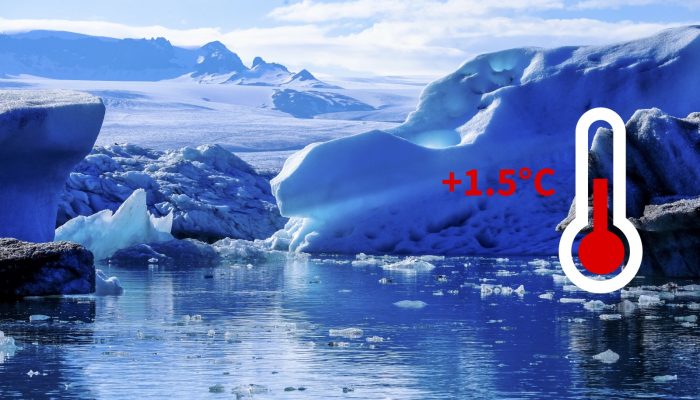Every year again, the Conference of Parties takes place, an event where politicians and activists from all over the world meet for two weeks to discuss further actions concerning climate change. In the context the COP24, which started this Monday in Katowice (Poland), let’s revisit an important decision made three years ago, during the COP21 in Paris, and its consequences for the state of the cryo ...[Read More]
What’s on at POLAR18?
Next Tuesday (19th June) the POLAR18 Open Science Conference kicks off in Davos, Switzerland. We have put together a quick guide about events that might be of interest to you during the week! Conferences are about the science, of course, but the social side is just as important 🙂 What is POLAR18? The eagle-eyed among you will have spotted that the POLAR18 conference is, in fact, a collection of di ...[Read More]
Back to the Front – Larsen C Ice Shelf in the Aftermath of Iceberg A68!

Sentinel 1 SAR image [Credit: Adrian Luckman, Swansea University].
Much of the Antarctic continent is fringed by ice shelves. An ice shelf is the floating extension of a terrestrial ice mass and, as such, is an important ‘middleman’ that regulates the delivery of ice from land into the ocean: for much of Antarctica, ice that passes from land into the sea does so via ice shelves. I’ve been conducting geophysical experiments on ice for over a decade, using mostly s ...[Read More]
Ice-Hot News : The “Oldest Ice” quest has begun

This is it! The new European horizon 2020 project on Oldest Ice has been launched and the teams are already heading out to the field, but what does “Old Ice” really mean? Where can we find it and why should we even care? This is what we (Marie, Olivier and Brice) will try to explain somewhat. Why do we care about old ice, ice cores and past climate? Unravelling past climate and how it responded to ...[Read More]


